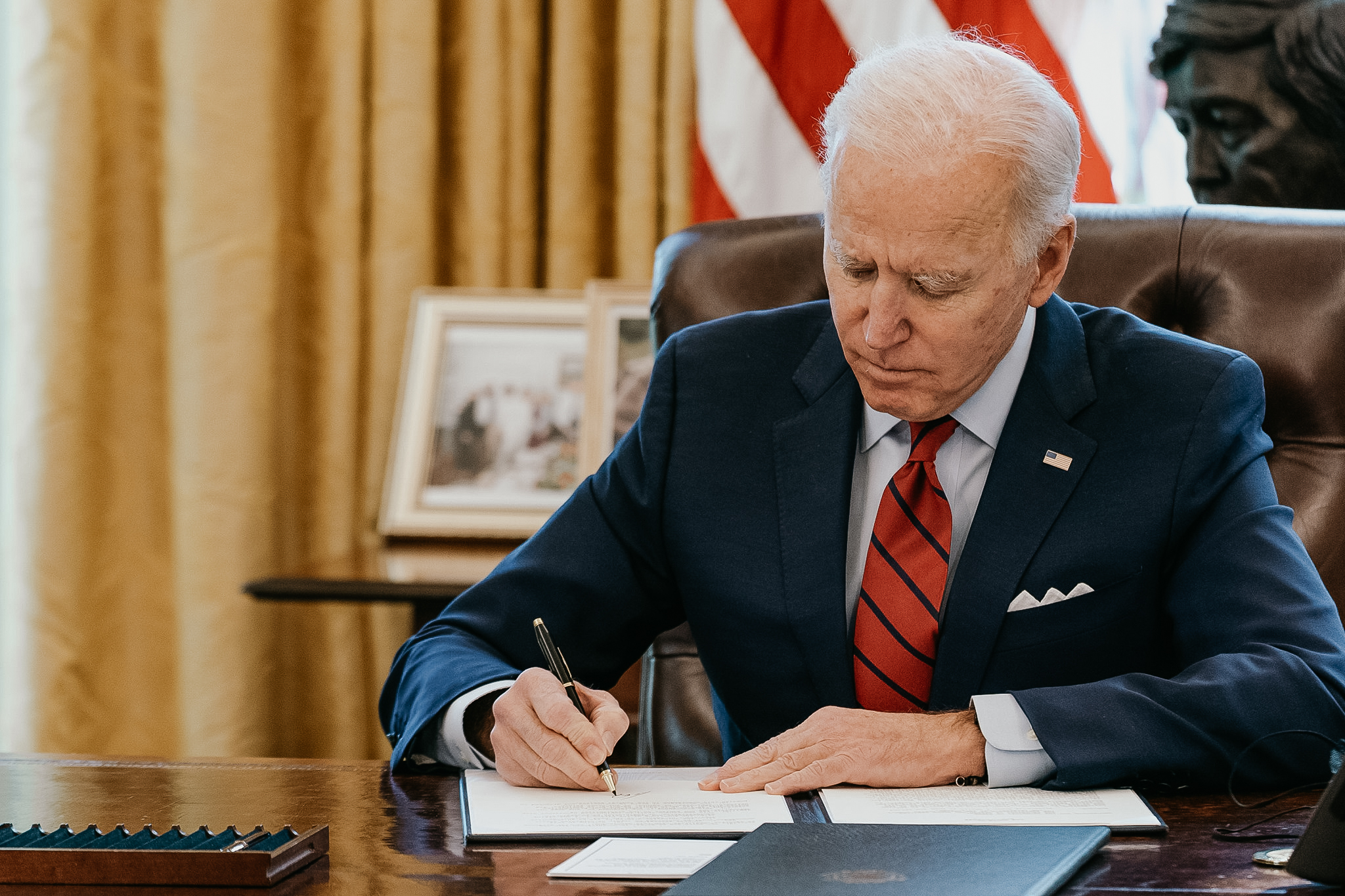On numerous occasions throughout his public career, President Biden asserted his personal belief as a Catholic that human life begins at conception and that abortion, therefore, is morally wrong. He has always been quick to add, however, that he is unwilling to use the law to “impose” this personal conviction on anyone else. He presumably feels that since this understanding of human life is a function of uniquely Catholic doctrine or dogma, it would be as objectionable to require everyone to accept it as it would to require all Americans to assent to the dogma of the Immaculate Conception or to the articles of the Nicene Creed.
But this is so much nonsense. Opposition to abortion is not a matter of doctrine in the strict sense of the term, but rather a conclusion drawn from moral reasoning and from the findings of objective science. It is an indisputable fact that human life—which is to say, a living human being with a distinctive genetic structure and identity—comes into existence at the moment of conception. It is furthermore a fundamental axiom of ethics that innocent human life ought never to be attacked. These insights and principles are the foundation of an argument against abortion that can and should be made in the public forum; they are decidedly not a matter of “dogma” peculiar to Catholicism. I fully understand that people might disagree with the line of reasoning that I’ve proposed. Fine, let’s argue the matter in the public forum and see which of us can garner majority support. But please don’t tell me that I’m imposing a dogma on you.
It is utterly incoherent to claim that one can hold to the position privately but not defend it publicly.
And while I’m at it, may I say, I am mightily tired of the way the President and his allies use the term “impose.” Time and again, they say some version of, “I’m unwilling to impose my beliefs on others.” Now that we’ve established that opposition to abortion is not a matter of sectarian doctrine, can we also admit that any law, by its very nature, imposes on others? If a majority of federal representatives formulated a piece of legislation to set the speed limit at 65, and if the executive agreed with this determination, a law would go into effect imposing this viewpoint on the entire society. The same goes for tax codes, anti-trust regulations, minimum wage requirements, civil rights statutes, etc. Laws don’t suggest; they impose. And behind every truly just law, there is some moral principle: preserving life, establishing greater justice, protecting the poor, fostering the common good, etc. So if you were to ask me whether I was working to impose on the entire society a law that would protect the rights of the unborn, I would say, “Yes.” And then I would add: “And what’s your point?”
And finally, can we please put paid to the silly position first articulated by Governor Mario Cuomo thirty-five years ago and then tiresomely repeated by far too many Catholic politicians ever since that “I am personally opposed to abortion, but publicly I support it.” Again, one might make such a distinction in regard to a strictly doctrinal matter, arguing, for instance, “I personally believe it is indispensable to attend Mass every Sunday, but I would never dream of sponsoring legislation to that effect.” However, since opposition to abortion, as we have just shown, is not a conviction born of “dogma” but rather of moral reasoning, it is utterly incoherent to claim that one can hold to the position privately but not defend it publicly. It would be precisely analogous to someone in the nineteenth century saying that though he personally finds slavery abhorrent, he will do nothing to eliminate it or even to stop its spread. It would also be precisely analogous to someone in the mid-twentieth century saying that though his personal conviction is that Jim Crow laws are morally repugnant, he will fight publicly to keep them in place.

In light of this, can you see why so many Catholics, including your humble scribe, find the President’s statements and actions in regard to abortion policy so repellent? The man claims that he objects to abortion, that he considers it morally wrong, and yet, time and time again, in the most straightforward, even strenuous manner, he strives, by word and deed, to make it more available, more acceptable, more legally defended. In the nineteenth century, the viscerally anti-slavery Abraham Lincoln did not pursue the extreme anti-slavery policy advocated by the abolitionists; rather, he took a more moderate position, endeavoring to hem slavery in, to limit its spread, in the hopes that he was setting it on course for extinction. This was, for the sixteenth president, a matter of prudential political judgment. If our current president, convinced as he claims to be that abortion is wrong, were to take steps in the direction of curtailing the practice, or if he could have found positive words to say about the Dobbs decision that at least gives individual states the right to restrict abortion, I might see him in the mold of Lincoln. But instead, he presses forward, advocating the most radical pro-abortion policy imaginable, seeking to codify into law the Roe v. Wade and Casey decisions that essentially made abortion up to the moment of birth a matter of legal impunity in our country.
President Biden speaks often of his Catholic faith, attends Mass regularly, and prays the Rosary. I have absolutely no reason to doubt the sincerity of his Catholicism. But I am sorry to say that, in regard to the most pressing moral issue of our time, he stands athwart both right reason and the explicit teaching of his Church.
